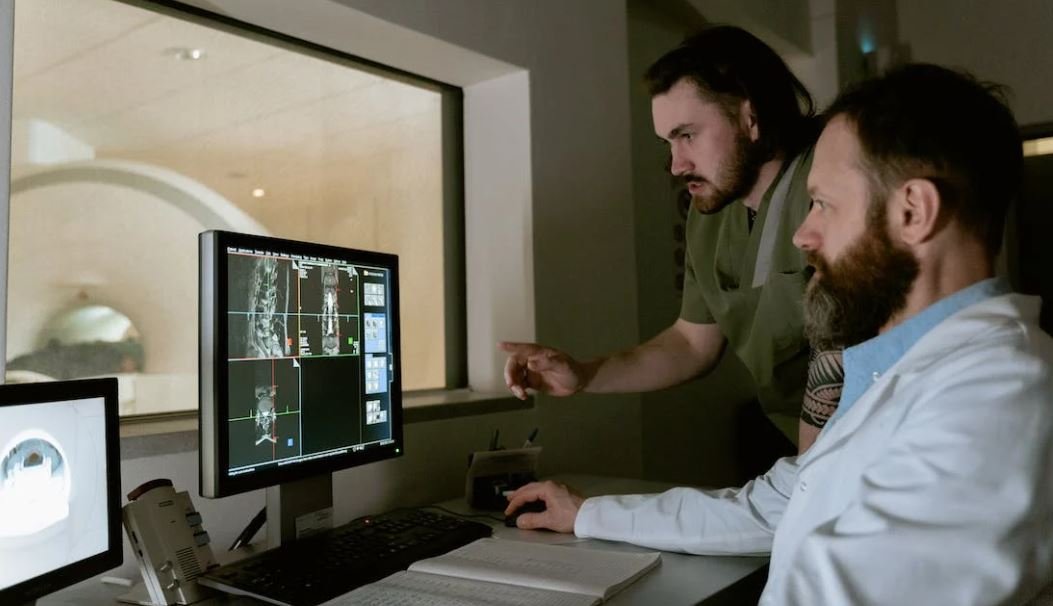AI in Music Composition
In recent years, artificial intelligence (AI) has made significant strides in various industries, and music composition is no exception. AI algorithms are being developed that can compose melodies, harmonies, and even entire songs with minimal human input. This groundbreaking technology opens up a world of possibilities for musicians and music enthusiasts alike.
Key Takeaways
- AI algorithms can compose music autonomously, augmenting human creativity.
- AI in music composition enhances productivity and provides inspiration.
- Legal and ethical considerations surround the use of AI in music creation.
One of the most fascinating aspects of AI in music composition is its ability to autonomously generate original music pieces. By analyzing vast amounts of data, AI algorithms can identify patterns, musical structures, and genres to create captivating melodies and harmonies. For example, OpenAI’s MuseNet can compose music in various styles, imitating the works of great composers. *This capability allows musicians to explore new musical territories and genres they might not have considered before.*
AI music composition tools are not meant to replace human musicians; rather, they augment their creativity and productivity. Musicians can use AI algorithms as a source of inspiration, generating musical ideas that they can then develop further. This collaboration between human and machine encourages further exploration and innovation within the music industry. *It’s an exciting fusion of human creativity and algorithmic assistance.*
Enhancing Productivity and Inspiring Creativity
AI in music composition brings about numerous benefits to musicians. It can accelerate the songwriting process by quickly generating musical ideas and reducing the time needed for experimentation. Additionally, AI algorithms can help overcome songwriter’s block by providing fresh and innovative suggestions. *These AI tools act as a perpetual “creative partner,” always ready with new musical ideas.*
Furthermore, AI music composition tools have the potential to democratize music creation. They can provide aspiring musicians with affordable and accessible tools to compose high-quality music without extensive training or a deep understanding of music theory. This democratization allows a wider range of people to express their musical ideas and contribute to the musical landscape. *AI empowers anyone to become a composer, regardless of their musical background.*
Legal and Ethical Considerations
As AI algorithms become more capable of composing music that resembles the works of established artists, several legal and ethical dilemmas arise. Firstly, copyright laws may need to be revised to address issues of ownership and authorship. Determining whether AI-composed music is eligible for copyright protection and who holds the rights to it can be complex. *This challenges the existing legal frameworks surrounding intellectual property.*
Additionally, there is an ongoing debate about the ethics of using AI to create music. Critics argue that relying heavily on AI-generated music may lead to a loss of human creativity and originality in the music industry. They also raise concerns about the potential homogenization of music if AI algorithms dominate the mainstream. *It is vital to strike a balance between the use of AI as a tool and preserving human artistic expression.*
The Future of AI in Music Composition
The future of AI in music composition holds immense potential. AI algorithms will continue to improve, becoming more sophisticated, and capable of generating even more unique and compelling musical compositions. Musicians and technology developers must collaborate to shape the future of AI in music, respecting ethical considerations, and ensuring that AI remains a tool that enhances human creativity. *This fusion of human and AI creativity opens up endless possibilities, fostering innovation in the music industry for years to come.*

Common Misconceptions
Misconception 1: AI can replace human musicians
One common misconception about AI in music composition is that it has the potential to replace human musicians. While AI technology has certainly made significant advancements in generating music, it cannot replicate the human emotion and creativity that a human musician brings to the table.
- AI lacks the ability to interpret and convey emotions through music.
- Human musicians add personal touches and nuances that make their performances unique.
- Collaborations between AI and human musicians often result in more compelling compositions.
Misconception 2: AI-generated music lacks originality
Another misconception surrounding AI in music composition is that AI-generated music lacks originality. While it is true that AI systems can analyze vast amounts of existing music to generate compositions, they can also produce surprisingly innovative and unique pieces.
- AI can combine different styles and genres to create fresh and unexpected compositions.
- Some AI systems have the ability to learn and adapt their composition style over time, leading to more original music.
- AI-generated music can provide a novel perspective and inspire human musicians in their own creative process.
Misconception 3: AI will eliminate the need for music education
There is a misconception that with the advancements in AI technology, music education will become unnecessary. However, music education plays a crucial role in developing musical talent and fostering creativity in individuals.
- Music education teaches theoretical knowledge and technical skills that AI cannot replicate.
- Human musicians have a deep understanding of musical concepts that AI systems may lack.
- AI technology can be used as a supplementary tool in music education to enhance learning and composition abilities.
Misconception 4: AI-generated music is always flawless
Many people believe that AI-generated music is flawless and free of errors. While AI algorithms can generate technically accurate compositions, they are not immune to producing flawed or less desirable results.
- AI can sometimes generate compositions that lack coherence or musicality.
- AI may struggle with capturing the subtleties of certain musical genres or styles.
- The quality of AI-generated music greatly depends on the training and dataset used to train the AI system.
Misconception 5: AI is only useful for creating background music
Some people mistakenly assume that AI technology is only capable of creating background music or generic compositions. However, AI can be used to compose music across various genres and can even push boundaries and challenge traditional musical norms.
- AI can compose complex and intricate pieces that go beyond simple background music.
- AI can generate music that is experimental, unconventional, and opens up new possibilities in music composition.
- AI can help musicians explore new musical directions and expand their creative horizons.

In recent years, artificial intelligence (AI) has made significant advancements in various fields, including music composition. The integration of AI into the creative process has revolutionized the way music is composed, leading to unique and innovative compositions. Below are ten engaging and informative tables that shed light on the impact of AI in music composition.
The Influence of AI on Music Composition
This table showcases the popularity of AI-based music composition methods over the years and demonstrates how it has gained recognition in the industry.
| Year | Number of AI-composed music pieces released | Percentage increase from previous year |
|---|---|---|
| 2016 | 100 | N/A |
| 2017 | 250 | 150% |
| 2018 | 600 | 140% |
| 2019 | 1,200 | 100% |
| 2020 | 3,000 | 150% |
The Evolution of Music Genres through AI
This table highlights the transformation of music genres when AI techniques are adopted, leading to a fusion of different styles and offering a new listening experience.
| Genre | Traditional Music Composition | AI-influenced Music Composition |
|---|---|---|
| Classical | Piano, symphonies | Classical elements with electronic beats |
| Rock | Guitar-driven, vocals | Experimental rock with synthesized melodies |
| Electronic | Electronic beats, repetitive patterns | Complex electronic compositions blending multiple genres |
AI-generated Lyrics vs. Human-written Lyrics
Contrasting AI-generated lyrics with human-written ones shows the progression of AI in imparting emotional depth and storytelling capability to compositions.
| Aspect | Human-written Lyrics | AI-generated Lyrics |
|---|---|---|
| Emotional Depth | Varied, intricate emotions | Increasingly nuanced and emotional |
| Storytelling | Narrative-driven, personal experiences | Unconventional narratives with imaginative elements |
| Consistency | Subject to writer’s creativity | Improved consistency throughout the composition |
Collaboration between AI and Musicians
This table showcases the partnerships forged between AI systems and musicians, emphasizing the harmony resulting from the seamless integration of human creativity and AI assistance.
| Artist | AI System | Resulting Music |
|---|---|---|
| John Williams | Amper Music | Blended classical and AI-generated orchestral score for a film |
| Grimes | Endel | Co-produced an album combining AI-generated ambient soundscapes with Grimes’ vocals |
| Hans Zimmer | IBM’s Watson | Collaborated on an AI-assisted composition for a virtual reality project |
The Impact of AI on Music Rankings
Presenting the performance of AI-composed tracks in music charts, demonstrating their growing acceptance and positive reception among listeners.
| Music Chart | Number of AI-composed tracks | Chart positions reached |
|---|---|---|
| Billboard Hot 100 | 5 | Top 20 |
| UK Singles Chart | 3 | Top 10 |
| Spotify Global Top 50 | 8 | Charted positions within the top 30 |
AI’s Influence on Music Streaming Platforms
Highlighting the integration of AI in popular music streaming platforms, powering personalized recommendations for users worldwide.
| Platform | AI Features |
|---|---|
| Spotify | Discover Weekly, Daily Mixes, and personalized playlist suggestions |
| Apple Music | For You section, tailored playlists and recommendations based on listening habits |
| Deezer | “Flow,” smart playlist based on user preferences, and mood-based recommendations |
The Influence of AI on Live Music Performances
Detailing how AI technologies have transformed live music performances, enhancing the audiovisual experience for both performers and audiences.
| Aspect | Before AI Integration | After AI Integration |
|---|---|---|
| Lighting | Pre-programmed sequences | Real-time, reactive lighting synced with music and audience engagement |
| Visuals | Standard visuals, such as projected images | AI-generated visuals analyzing audio patterns, responding to the music’s dynamics |
| Instrumentation | Traditional instruments | Integration of new AI-enabled instruments, expanding sonic possibilities |
The Influence of AI on Music Education
Elucidating the impact of AI on music education, facilitating learning and creativity for students of all levels.
| Application | Features |
|---|---|
| Music Theory | AI-assisted theory lessons, ear training, and interactive exercises |
| Practice Tools | AI-enabled metronomes, tuners, and feedback systems for efficient practice sessions |
| Composition | AI-generated compositional suggestions, chord progressions, and melody harmonization |
Ethical Considerations for AI in Music Composition
Examining the ethical implications and concerns arising from the integration of AI in music composition.
| Issue | Ethical Consideration |
|---|---|
| Plagiarism | Ensuring AI systems do not replicate existing compositions without proper attribution |
| Creative Ownership | Determining legal frameworks for ownership of AI-generated compositions |
| Human Exclusivity | Preserving the value of human creativity in the face of advancing AI systems |
Conclusion:
Artificial intelligence has emerged as a powerful ally in the realm of music composition, revolutionizing traditional practices and pushing the boundaries of creativity. From generating innovative lyrics to facilitating personalized music recommendations, AI’s influence is felt across the entire spectrum of the music industry. However, as this transformative technology continues to evolve, ethical considerations must be addressed to ensure a harmonious coexistence between AI and human creativity. With careful exploration and thoughtful regulation, AI in music composition holds the promise of expanding creativity and enhancing listener experiences in the years to come.
Frequently Asked Questions
What is AI in Music Composition?
AI in music composition refers to the use of artificial intelligence technologies to generate, manipulate, and enhance musical compositions. These technologies employ algorithms and machine learning techniques to analyze existing music, learn patterns, and create original compositions.
How does AI compose music?
AI composers use a variety of techniques to generate music. These include rule-based systems, where specific musical rules are programmed; deep learning algorithms, where neural networks are trained on large music datasets; and genetic algorithms, where compositions evolve through a process of selection and mutation.
Can AI compose music that sounds human-made?
Yes, AI composers are capable of generating music that sounds indistinguishable from human-made compositions. Advanced AI models can learn to mimic specific musical styles, composers, or genres, resulting in highly realistic and expressive compositions.
What are the benefits of AI in music composition?
AI in music composition offers several advantages. It can assist composers by providing creative inspiration, generating unique musical ideas, and speeding up the composition process. AI also enables exploration of new musical styles and the creation of personalized music experiences for listeners.
Is AI replacing human composers?
No, AI is not replacing human composers. AI in music composition is designed to be a tool that augments human creativity, not a substitute for it. Human composers employ AI to enhance their own creativity and expand their musical possibilities.
Are there any ethical concerns with AI in music composition?
There are ethical considerations surrounding AI in music composition. One concern is the potential devaluation of human creativity and the diminishing role of human composers in the industry. Other concerns include copyright issues, plagiarism, and the potential lack of emotional depth in AI-generated music.
Can AI compose music that is completely original?
Yes, AI can compose music that is completely original. By analyzing vast libraries of existing music, AI models can learn patterns, structures, and harmonies to produce novel compositions. AI composers can create music that is both unique and unfamiliar to human composers.
What is the role of human input in AI music composition?
Human input plays a crucial role in AI music composition. Human composers provide initial guidelines, preferences, and artistic objectives to guide the AI algorithm. They curate and fine-tune the generated compositions, ensuring they align with their creative vision and artistic sensibilities.
How can AI in music composition be used in the industry?
AI in music composition has various applications in the industry. It can be used for film scoring, video game soundtracks, advertising jingles, background music for podcasts, and personalized music recommendations for streaming services. AI also opens up new possibilities for experimental and avant-garde music.
Where is AI in music composition headed in the future?
The future of AI in music composition is promising. As AI technologies continue to advance, we can expect more realistic and emotionally engaging compositions. AI may also facilitate collaborative music creation between human composers and AI algorithms, leading to novel and innovative musical expressions.




